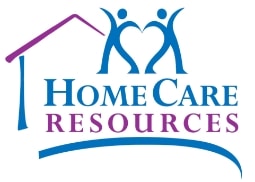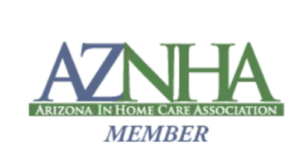
October is National Breast Cancer Awareness Month, a month set aside to raise awareness of the impact of breast cancer, whether you are battling it yourself or have a loved one battling breast cancer.
If you are taking care of an elderly parent, especially a mother, you might be concerned about breast cancer, especially if it runs in your family. While most women have some risk factors for developing breast cancer, most women will not. Some may develop it without any risk factors – other than being a woman.
While knowing risk factors is important in many ways, regular mammograms with your parent’s doctor and monthly self-checks are the best ways to watch for breast cancer to develop. Your companion care at home team can help set up mammogram appointments for your parent. If your parent needs transportation, your companion care at home team can also help, so there are no excuses for your parent to not get regularly examined.
Let’s take a look at the risk factors that may increase the likelihood of breast cancer developing in your elderly parent.
Risk Factors Your Parent Cannot Change:
- Age. Breast cancer is more common in those older than 50 years old.
- Genetic Mutations. Some women have inherited certain mutations in certain genes, which will make them more likely to develop breast cancer.
- Dense Breast Tissue. If your parent has more connective tissue than fatty tissue, it can be more difficult to spot an early tumor. It is also more likely to develop a tumor.
- Family History. If your mother has a first-degree relative who has developed breast cancer, she’s more likely to develop it herself. A first-degree relative can include a mother, sister, or daughter, or even a father, brother, or son. She’s also at a higher risk if she’s had breast cancer before.
- Exposure to the drug diethylstilbestrol (DES). DES was given to pregnant women in the United States between 1940 and 1971 to prevent miscarriage. Women who took DES, or whose mothers took DES while pregnant with them, have an increased risk of breast cancer.
Risk Factors Your Parent Can Change:
(These are especially important if she has several factors she cannot change.)
- Being Overweight or Obese After Menopause. If your elderly parent is overweight or has obesity, it might put her at higher risk. Work with her doctor to help her return to a healthy weight.
- Being Inactive. Not getting regular exercise increases the risk of obesity. Having your companion care at home provider encourage and even join your parent for walks every day or other activity can help reduce her risk.
- Using Hormones. Some hormone replacement therapy drugs can increase the risk of breast cancer.
- Drinking Alcohol. If your parent is a regular drinker of alcohol, it could increase her risk for the disease.
Knowing the risk factors is just one step toward healthy breast care.
If you or an aging loved one are considering hiring Companion Care at Home in Scottsdale, AZ, please contact the caring staff at Home Care Resources at (602) 443-4700.
Source:
https://www.cdc.gov/cancer/breast/basic_info/risk_factors.htm
- Six Warning Signs of Diabetes to Watch for in Seniors with Dementia - May 19, 2025
- Understanding Chronic Conditions in Seniors: The Importance of Support - May 9, 2025
- Helping Your Elderly Loved One Maintain Healthy Vision - April 24, 2025




